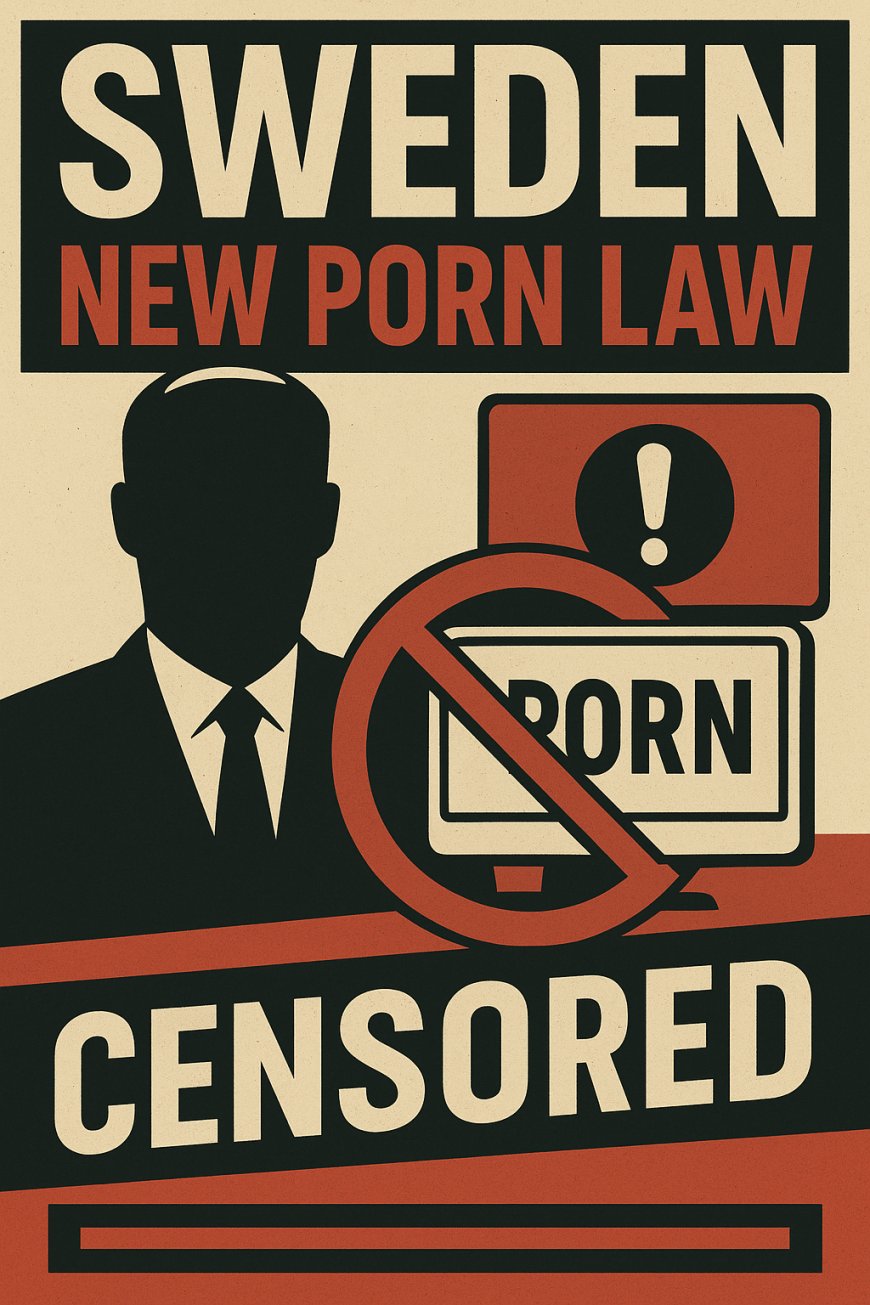Sweden Criminalizes the Purchase of Porn: Legal Overreach or Moral Panic?
Sweden’s new law criminalizing the purchase of pornography risks legal overreach, privacy violations, and economic harm to consensual creators. This article examines the law’s impact on civil liberties and digital expression.

Intro
Sweden has passed a controversial new law criminalizing the purchase of pornography, whether public or private. The legislation, which takes effect July 1, 2025, marks a historic shift in the country’s legal stance on adult content. But behind the headlines lies a complex web of legal overreach, moral panic, and unintended consequences.
What the Law Says
The law makes it a criminal offense to pay for, trade, or access sexually explicit material involving others, even with consent. This includes:
- Paid subscriptions to adult websites.
- Purchasing or trading OnlyFans content.
- Accessing VR-based adult interactions for a fee.
- Paying individuals directly for adult content, regardless of whether the seller consents or is a legal adult.
The punishment? Fines, jail time, and a permanent criminal record.
Intent vs. Impact
Lawmakers argue the bill is designed to curb sex trafficking and protect vulnerable individuals. But critics say it paints all consensual adult content as inherently abusive, ignoring the existence of ethical, self-owned creators and private transactions.
Real-World Fallout
- Privacy Violation: Enforcement mechanisms may require surveillance of online activity, payment processors, and chat logs, infringing on civil rights.
- Economic Impact: Thousands of legal, consenting creators (including disabled, neurodivergent, or marginalized individuals) risk losing their income.
- Chilling Effect: Fear of prosecution may deter even non-sexual adult expression, including kink communities, educational platforms, and LGBTQ+ creators.
Global Backlash
The law has sparked outrage from international digital rights groups. Sweden, once seen as a progressive leader, is now facing criticism for stepping into authoritarian territory under the guise of morality.
Where This Leads
The law is vague and broad. It offers no clear boundaries or appeal paths. It criminalizes adult intimacy, digital expression, and even survival work for people with limited access to traditional employment.
Conclusion
Sweden’s porn ban isn’t about safety. It’s about control. When a government uses broad laws to legislate morality, it stops protecting its citizens and starts policing them. This isn’t protection. This is a warning.
What's Your Reaction?
 Like
0
Like
0
 Dislike
2
Dislike
2
 Love
0
Love
0
 Funny
0
Funny
0
 Angry
0
Angry
0
 Sad
0
Sad
0
 Wow
0
Wow
0


















